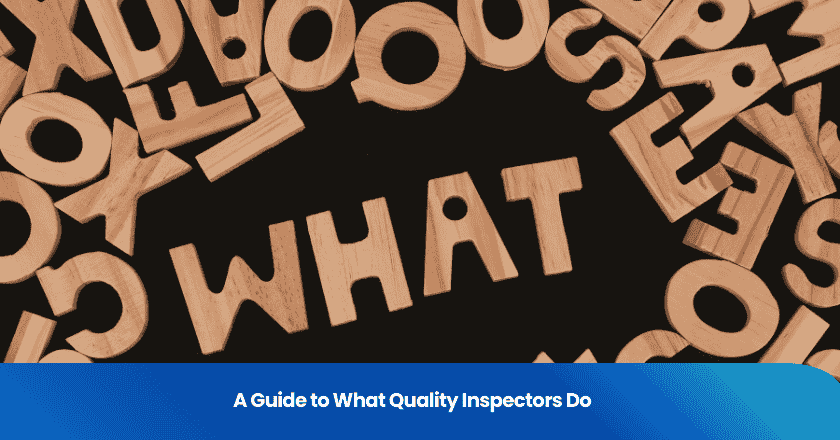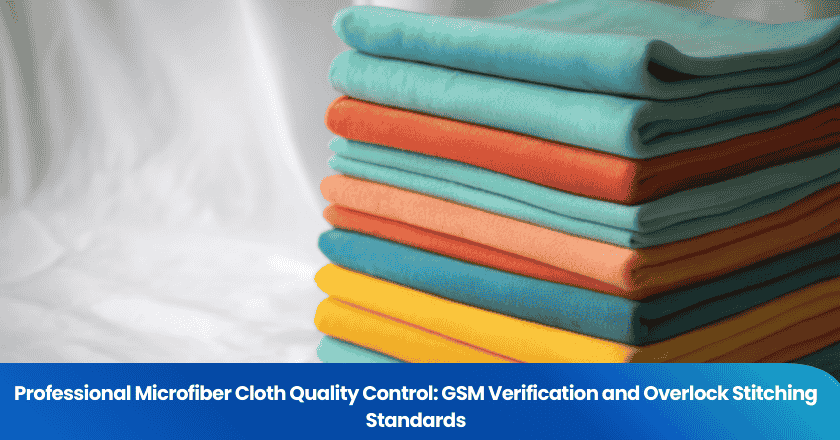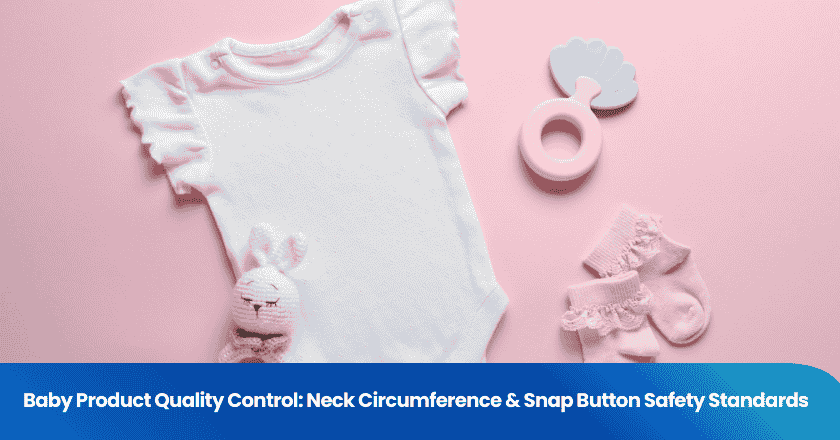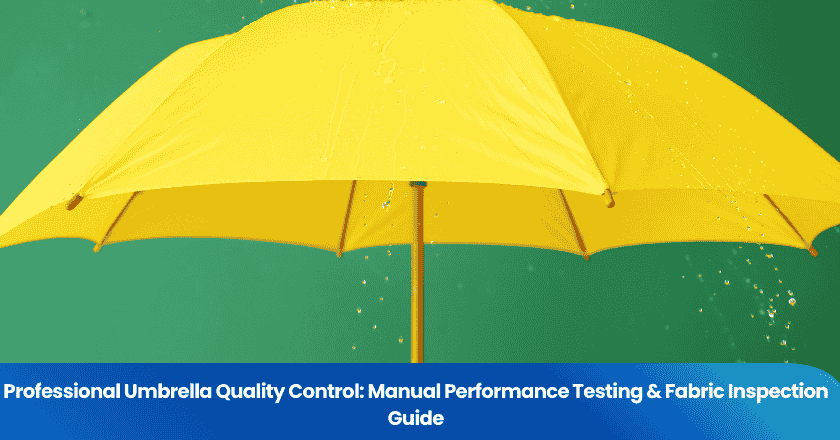
What do quality inspectors do? They examine products and processes to ensure that quality meets industry standards. Quality inspectors use their expertise to identify issues before items reach customers. The role of quality control inspectors extends beyond visual checks; they apply measurement tools and tests to guarantee quality. What do quality inspectors do in daily work? They protect consumers by upholding strict quality requirements. The role of quality control inspectors helps companies maintain quality and trust. What do quality inspectors do shapes the reputation of every organization that values quality.
What Do Quality Inspectors Do
Quality control inspectors play a vital role in maintaining product excellence across industries. They examine products, materials, and processes to ensure compliance with quality standards. Their work involves a combination of inspection, testing, and documentation. The authority to reject non-compliant items gives them significant responsibility in the production process. What do quality inspectors do each day? They protect consumers and businesses by upholding quality standards adherence and ensuring only the best products reach the market.
Inspection Tasks
Quality control inspectors perform a range of inspection tasks throughout the production cycle. They visually examine raw materials, components, and finished goods for any irregularities. During the inspection process, they use checklists and reference guides to compare items against established quality standards. Quality inspectors also conduct in-process inspections to catch issues early and prevent defective products from advancing. Final inspection serves as the last checkpoint before products leave the facility. This step ensures that only items meeting all requirements proceed to distribution.
Tip: Consistent inspection at every stage helps maintain high quality and reduces costly recalls.
Testing and Measurement
Testing forms the backbone of quality control inspector duties. They use specialized tools and equipment to measure dimensions, weight, and other physical properties. Testing and measurement confirm that products meet technical specifications. Quality control inspectors perform inspection and testing on samples from production batches to verify consistency. They may use gauges, micrometers, or electronic devices for precise results. Testing also includes stress tests, durability checks, and performance evaluations. Inspection and testing together provide a comprehensive view of product quality.
A typical testing and measurement process may include:
- Selecting random samples for quality inspection
- Using calibrated instruments for accurate measurement
- Recording results for analysis and traceability
Identifying Defects
Defect identification stands at the core of the quality control inspector’s responsibilities. They look for flaws such as cracks, discoloration, incorrect dimensions, or functional failures. Early defect identification prevents faulty products from reaching customers. Quality control inspectors document each defect and classify it by severity. They work closely with production teams to address root causes and implement corrective actions. The ability to spot subtle defects requires sharp attention to detail and a thorough understanding of quality standards.
Quality control inspectors often use a table to track defects:
| Defect Type | Frequency | Severity | Action Taken |
|---|---|---|---|
| Surface Scratch | 5 | Minor | Rework |
| Incorrect Size | 2 | Major | Reject |
| Color Variation | 3 | Moderate | Investigate Process |
Documentation
Accurate documentation supports every aspect of the quality control inspector’s work. They record inspection results, testing data, and defect reports in detailed logs. Documentation ensures traceability and accountability throughout the production process. Quality control inspectors maintain records for compliance audits and continuous improvement efforts. They update inspection checklists and testing protocols as standards evolve. Proper documentation also supports final product inspection and final inspection, providing evidence that products meet all requirements.
Note: Reliable documentation helps companies demonstrate quality standards adherence during regulatory reviews.
Quality control inspectors combine inspection, testing, defect identification, and documentation to deliver consistent quality. Their expertise ensures that every product meets or exceeds expectations, safeguarding both consumers and business reputations. What do quality inspectors do? They serve as the guardians of quality at every stage of production.
Responsibilities of Quality Control Inspectors
Compliance Checks
Quality control inspectors carry out compliance checks as a core responsibility. They review raw materials before production begins. This step ensures that only materials meeting quality standards enter the manufacturing process. Inspectors perform in-process inspection by monitoring the production process at different stages. They check for adherence to quality standards and identify any deviations early. Inspectors also conduct random quality check procedures on finished products. These checks confirm that items meet both internal and regulatory requirements. Quality control inspectors use established quality control procedures to maintain consistency and reliability in every batch.
Note: Regular compliance checks help prevent costly errors and support quality standards adherence throughout the production cycle.
Collaboration with Teams
Quality control inspectors work closely with production teams to address quality issues. When inspectors find defects or non-conformities, they communicate findings to supervisors and operators. This collaboration allows teams to implement corrective actions quickly. Inspectors also help train staff on quality control and quality assurance best practices. By sharing insights from quality control processes, inspectors support continuous learning and improvement. Maintaining open communication ensures everyone understands the importance of quality assurance and quality standards adherence.
A typical collaboration process includes:
- Reporting defects to production leaders
- Suggesting process improvements
- Assisting with staff training on quality control and quality assurance
Continuous Improvement
Continuous improvement forms a key part of the responsibilities of quality control inspectors. Inspectors analyze data from inspections and tests to identify trends or recurring issues. They recommend changes to quality control processes that can boost efficiency and product quality. Inspectors document all findings and maintain detailed quality records. These records help track progress and support future audits. By focusing on continuous improvement, quality control inspectors help organizations achieve higher standards and better customer satisfaction.
| Area of Focus | Inspector’s Role | Outcome |
|---|---|---|
| Data Analysis | Review inspection results | Identify improvement areas |
| Process Adjustment | Recommend changes | Enhance product quality |
| Record Keeping | Maintain quality documentation | Support traceability |
Quality control inspectors play a vital role in monitoring the production process, ensuring quality control and quality assurance, and driving ongoing improvements in every organization.
Quality Inspector Skills
A quality control inspector must possess a unique set of skills to ensure products meet the highest standards. These skills enable the inspector to identify issues, maintain consistency, and support continuous improvement in any production environment.
Technical Skills
Technical skills form the foundation for every quality control inspector. Inspectors must understand how to operate specialized equipment and tools for measuring and testing. They interpret technical drawings, specifications, and quality standards. Mastery of testing procedures allows the inspector to verify product dimensions, weight, and performance. Inspectors also calibrate instruments to guarantee accurate results. Familiarity with industry regulations and quality systems supports compliance during every inspection.
Tip: Regular training on new testing equipment helps a quality control inspector stay current with industry advancements.
Attention to Detail
Attention to detail distinguishes an effective quality control inspector. Inspectors notice small defects or inconsistencies that others might overlook. They carefully review each product, material, or process for signs of non-compliance. Consistent attention ensures that only products meeting strict quality standards move forward. Inspectors document findings with precision, supporting traceability and future analysis. This skill reduces the risk of defective products reaching customers and protects the reputation of the organization.
A quality control inspector often uses checklists to track inspection points:
- Visual appearance
- Measurement accuracy
- Testing results
- Documentation completeness
Communication
Strong communication skills help a quality control inspector collaborate with team members and management. Inspectors report findings clearly and suggest corrective actions when necessary. They explain testing procedures and quality requirements to production staff. Effective communication ensures everyone understands the importance of quality and follows established processes. Inspectors also participate in meetings to discuss trends, share insights, and support continuous improvement efforts.
| Skill Area | Importance for Quality Control Inspector |
|---|---|
| Technical Skills | Accurate testing and measurement |
| Attention to Detail | Reliable defect identification |
| Communication | Team collaboration and process clarity |
A quality control inspector combines technical expertise, sharp observation, and clear communication to uphold quality at every stage of production.
Work Environments for Quality Control Inspectors
Manufacturing
Quality control inspectors spend much of their time in manufacturing environments. They monitor each stage of the manufacturing process to ensure products meet strict quality standards. Inspectors check raw materials before production begins. They observe assembly lines and verify that workers follow procedures. During the manufacturing process, inspectors use measurement tools to confirm that each part matches specifications. They also perform random checks to catch defects early. Inspectors document their findings and report any issues to supervisors. Their presence helps maintain consistency and prevents problems from reaching customers. The manufacturing process relies on these professionals to keep quality at the highest level.
Note: Inspectors often rotate between different stations to observe the entire manufacturing process and spot potential risks.
Warehousing
Warehousing environments require a different approach to quality control. Inspectors check incoming shipments for damage or incorrect items. They verify that storage conditions meet quality requirements. Inspectors monitor how products are handled and stored throughout the warehouse. They ensure that inventory remains in good condition until it moves to the next stage of the manufacturing process or distribution. Inspectors also review packaging to confirm it protects products during transport. Their attention to detail helps prevent quality issues caused by improper storage or handling.
A typical warehousing inspection may include:
- Checking temperature and humidity controls
- Inspecting packaging for damage
- Verifying inventory records
Other Industries
Quality control inspectors work in many industries beyond manufacturing and warehousing. In food production, they monitor cleanliness and test samples for safety. In electronics, inspectors check circuit boards and components during the manufacturing process. The automotive industry relies on inspectors to examine parts and finished vehicles for defects. Inspectors in pharmaceuticals verify that products meet health and safety standards. Each industry has unique challenges, but the goal remains the same: maintain quality throughout every step of the manufacturing process.
| Industry | Inspector’s Focus | Example Task |
|---|---|---|
| Food Production | Hygiene, safety, quality | Sample testing |
| Electronics | Precision, assembly, quality | Circuit board inspection |
| Automotive | Safety, function, quality | Vehicle component checks |
| Pharmaceuticals | Compliance, purity, quality | Batch record review |
Quality control inspectors adapt their skills to different environments. Their work ensures that the manufacturing process and final products always meet the highest quality standards.
Becoming a Quality Control Inspector
Education and Training
Individuals interested in a career as a quality control inspector often begin with a high school diploma or equivalent. Many employers prefer candidates who have completed courses in mathematics, science, or technical subjects. Some inspectors attend vocational schools to gain hands-on experience with inspection tools and measurement techniques. On-the-job training plays a significant role in developing practical skills. Supervisors guide new inspectors through inspection procedures and safety protocols. Training programs may include instruction on reading blueprints, using gauges, and understanding quality standards.
Tip: Practical experience in a manufacturing or laboratory setting helps candidates build confidence and competence.
Certifications
Certifications enhance the qualifications of a quality control inspector. Professional organizations offer certification programs that validate an inspector’s expertise. Common certifications include Certified Quality Inspector (CQI) and Certified Quality Technician (CQT). These credentials require passing exams that test knowledge of inspection methods, documentation, and industry regulations. Some employers encourage inspectors to pursue certifications to demonstrate commitment to quality and continuous improvement. Maintaining certification often involves ongoing education and renewal.
| Certification | Issuing Organization | Focus Area |
|---|---|---|
| CQI | ASQ | Inspection methods |
| CQT | ASQ | Technical proficiency |
Career Path
A career as a quality control inspector offers opportunities for advancement. Entry-level inspectors start by performing basic inspections and measurements. With experience, they may move into senior inspector roles, overseeing teams and managing complex projects. Some inspectors transition into quality assurance, process improvement, or supervisory positions. Career growth depends on skill development, certification, and performance. Inspectors who show leadership and technical expertise often progress to roles such as quality manager or auditor.
- Entry-level: Basic inspection tasks
- Mid-level: Team leadership, advanced testing
- Senior-level: Quality management, auditing
A career as a quality control inspector provides a stable path for individuals who value precision and continuous learning.
Impact of Inspection on Quality and Reputation
Product Quality
Quality control inspectors play a crucial role in maintaining high product standards. They use their expertise to detect issues before products reach customers. Their attention to detail ensures that every item meets strict requirements. Quality assurance processes guide inspectors as they check for consistency and reliability. These professionals use established methods to verify that products function as intended. They document findings and share results with production teams. This feedback loop helps manufacturers correct problems quickly. As a result, companies deliver products that meet or exceed customer expectations. Quality assurance also reduces the risk of recalls or safety incidents. Customers trust products that pass rigorous checks. High product quality leads to fewer complaints and greater satisfaction.
Tip: Consistent quality checks at every stage of production help prevent defects and maintain customer trust.
Business Reputation
A company’s reputation depends on its commitment to quality. Quality control inspectors support this reputation by ensuring products meet industry standards. Their work demonstrates that the business values safety and reliability. Quality assurance practices show customers and partners that the company takes responsibility for its products. When inspectors identify and address issues early, they protect the brand from negative publicity. Satisfied customers often recommend products to others. Positive word-of-mouth can lead to increased sales and long-term success. On the other hand, poor quality can damage a company’s image quickly. Businesses that invest in quality assurance build strong reputations in the marketplace.
| Impact Area | Result for Business |
|---|---|
| Consistent Quality | Customer loyalty |
| Fewer Defects | Lower costs |
| Strong Reputation | Competitive advantage |
Quality assurance and thorough inspections help companies maintain a positive image and achieve lasting growth.
Quality inspectors play a vital role in maintaining product quality and safety. Their expertise ensures that every item meets strict standards. Key aspects of their work include:
- Inspecting products and processes
- Collaborating with teams
- Applying technical skills and attention to detail
- Working in diverse environments
- Supporting continuous improvement
Quality inspectors help organizations build trust and deliver reliable products. Every industry benefits from their dedication and professionalism.
FAQ
What industries employ quality inspectors?
Quality inspectors work in manufacturing, automotive, electronics, food production, pharmaceuticals, and warehousing. Many industries rely on their expertise to maintain product standards and ensure regulatory compliance.
What tools do quality inspectors use?
Inspectors use calipers, micrometers, gauges, and electronic testing devices. They also rely on checklists, reference guides, and computers for documentation and data analysis.
How do quality inspectors handle defects?
Inspectors identify and document defects, classify them by severity, and report findings to production teams. They help implement corrective actions to prevent future issues.
Is certification required to become a quality inspector?
Certification is not always required, but it can improve job prospects. Many employers value certifications that demonstrate technical knowledge and commitment to quality.
What is the difference between quality control and quality assurance?
Quality control focuses on inspecting products and processes for defects. Quality assurance involves developing systems and procedures to prevent defects and ensure consistent quality.
Grow your business with TradeAider Service
Click the button below to directly enter the TradeAider Service System. The simple steps from booking and payment to receiving reports are easy to operate.





